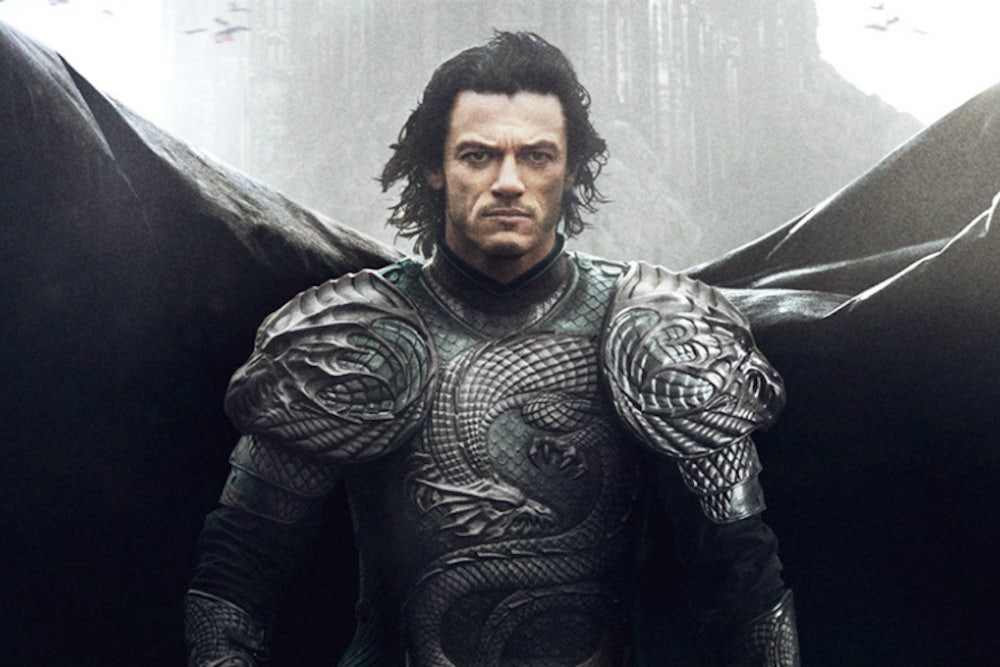This week I saw Dracula Untold in Istanbul, with an Italian Turkologist who shares my enthusiasm for vampire movies. It was past 10 p.m. when the credits rolled, and the audience was disgruntled. Outside, Istiklal Street was still booming. An armored police van drove past us, weaving through indifferent crowds. “That film was very anti-Muslim,” said my friend. I’m the Muslim one in our relationship, but I was trying to shrug it off, because frankly what else is new?
I do love a good villain, and take some pride in that black-eyed madness the historical Turk is infamous for. So, far from having an objection to my forefathers being cast in a nefarious light, it actually took some effort to reign back the gleeful cackling every time Dominic Cooper’s Mehmet II came on screen. That said, my issue is one of historical accuracy, and contemporary significance.
Admittedly, Hollywood is no genius when it comes to accurate representation. If it’s not a larger-than-life action flick where America is saving the world from aliens, chances are they’ll get it all wrong. But why Turks? And why now, when all eyes are on Turkey, and the country teeters unwillingly on the frontline of impending war? In the current climate of global political tension and escalating Islamophobia, what political statement does Dracula Untold make in pitting our vampire hero against the armies of Mehmet II?
The film’s generous use of the word “Turk” was interesting. To call an Ottoman a Turk is like calling a Roman an Italian. True, the Ottoman sultans were of Turkic origin. But the empire was much too big, much too ethnically diverse to be called Turkish.
In the Age of Enlightenment, “Turk,” “Moor,” and “Mohammedan” were interchangeable terms which basically meant Muslim. When an Englishman adopted the Islamic faith (and records hint that there was an influx of “apostates” during the Jacobean period) he was said to have “turned Turk.” Europe wasn’t merely compromised by the economic and military might of the civilized Muslim world. It was compromised by the reality of Islam as a fast-spreading faith which bore alarming similarities to the Judeo-Christian revelation. It was appealing. Glamorized even, by wealthy, cultivated Muslim travelers hailing from exotic lands. The wide use of “Turk” then, was an attempt to tribalize the Islamic faith and associate it with foreign, potentially threatening powers, which were the common enemy.
I’ll fill you in on some more history. Vlad Dracul II of the house of Draculesti sought support from the Ottoman Sultan in his claim to the Wallachian throne. To put him on it, the Ottomans waged war with Dracul’s enemies. In return, Dracul willingly offered them not one, but two of his sons: Vlad Tepes Dracula and Radu cel Frumos—aka Radu the handsome.
While Vlad Tepes went on to become the progenitor of the vampire myth, his brother would remain loyal to the Sultan, and his childhood friend, Mehmet II. A skilled and celebrated general, Radu proved invaluable in the conquest of Istanbul. And when Vlad Tepes started wreaking carnage across the Balkans, Mehmet II dispatched Radu to quell his brother’s blood-thirst. Vlad’s insurrection was not dissimilar to the terror tactics of the so-called Islamic State. He killed indiscriminately: Men, women, and children; Turks and Bulgarians; Muslims and sympathizing Christians alike were put to the stake. He boasted of his cruelty to the horror of his foes and allies. And having been raised among Muslims, he had the advantage of disguise. During their guerilla attacks, his men were dressed in Ottoman uniforms. He talked Turkish, walked Turkish, and burned villages to the ground.
The brothers battled long, but Radu was victorious. Vlad Tepes fled to Hungary, where he sought sanctuary with the Corvinus clan. But frankly they’d also had enough of his grizzly antics, so they imprisoned him on charges of treason. True story.
Fast forward to the 21st century. In Dracula Untold, Mehmet II seals his demands on Vlad with a bloody thumb-print, and the scene’s final shot is of the Sultan’s thumb on an imperial edict, alongside a stamp bearing the name of God in Arabic script. The Sultan’s cruelty then is the will of the Muslim god, who is out to get your children. Today, vilification of Islam has reached such heights, that even when the Sultan is cast opposite history’s bloodiest-psycho-tyrant, it’s Dracula who emerges as the tragic hero.
This article originally appeared at the New Statesman.
